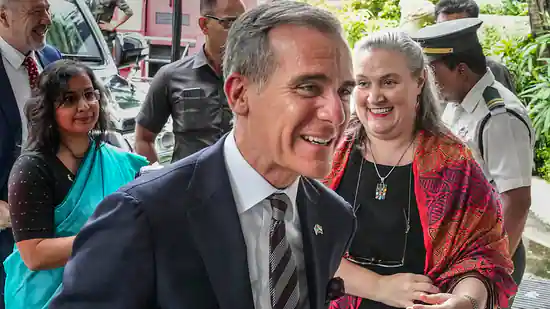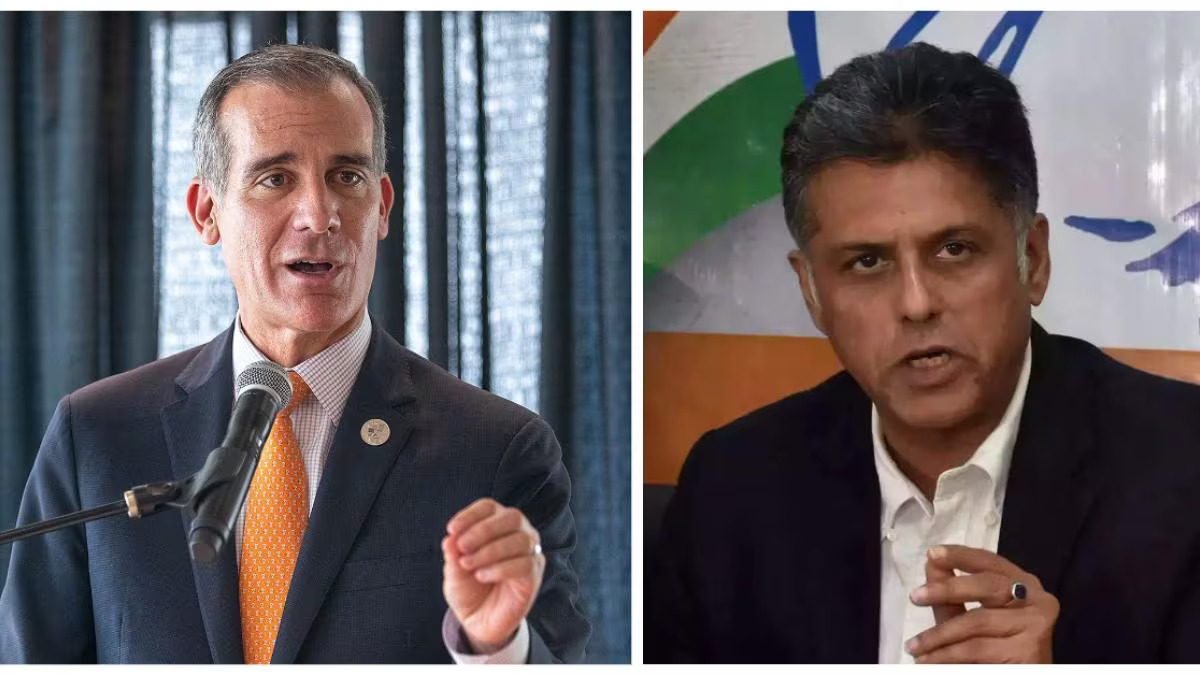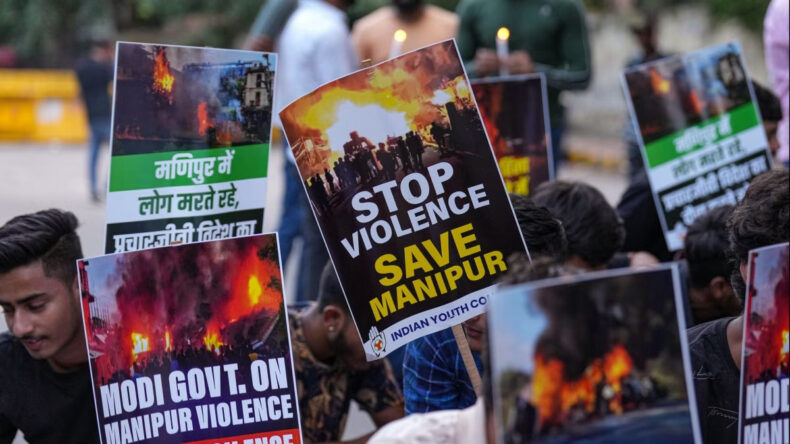On Thursday, July 6, US Ambassador to India Eric Garcetti stated that the US is ready to assist India in dealing with the crisis “if asked” and that the situation in Manipur is a matter of human concern.

Garcetti made these comments while participating in a press conference at the American Center in Kolkata.
When asked if the US administration was concerned about Manipur’s condition as well as India’s purported democratic backsliding, he responded, “Let me speak about Manipur first.” We ask for tranquility there. I don’t believe the United States has a strategic concern when you question us about their issue. I believe it has to do with human concern… You don’t have to be Indian to care when children and people are killed in the kind of violence that we saw [in Manipur], and we are aware that peace sets the stage for a lot of other positive outcomes. There have been a lot of positive developments in the northeast and east, but they cannot continue in the absence of peace.
If asked, we are prepared to help in any way. We are aware that it is an Indian issue, and we pray for speedy peace. Because if that peace is in place, we can bring more collaboration and more investment, he said. I want to convey one very clear message: the United States cares about India’s east and northeast. We care about its people, its landscape, its potential, and its future.
The US ambassador goes on to say that democracy is challenging, combining the ideas of majority rule and minority rights protection. He stated that preserving democracy is equally as important as establishing it, something that both the United States and, to my knowledge, individuals in India have grappled with since the republic’s foundation.
Garcetti stated that the guiding idea should be creating a sense of belonging for everyone, possibly in reply to the claims that the Union administration has exacerbated divisions. We are aware of how many positive things can start with peace. The Northeast and the East have made such great strides recently. Without peace, countries cannot sustain their extraordinary recent achievements.
Is India Willing to take help?
When asked about Garcetti’s remarks, Ministry of External Affairs spokesperson Arindam Bagchi responded, “I haven’t seen those comments by the US ambassador.” We will determine if he has made them. I believe we would want peace there as well, and our agencies, security forces, and local government are all working on it. Foreign ambassadors might not often comment on domestic affairs in India, but I wouldn’t want to without first hearing what was said.

It is extremely uncommon for a US envoy to make a declaration of this type about the internal affairs of India, according to Congressman Manish Tewari. Over the years, we had challenges in Punjab, J&K, and the North East, which we overcame with cunning and knowledge. The US Ambassador in India was reserved even when Robin Raphel would speak out for J&K in the 1990s, he tweeted.
Although the US ambassador acknowledges that there are many difficulties facing the nation, India has never valued any comments made on its internal affairs. In the US, there is gun violence and many people are killed. We never advised the US to control that by taking a page from our book. Racism in the US is causing riots. They were never informed that we would lecture them. According to Tewari, it may be crucial for the next Ambassador to be aware with the background of India-US ties.













